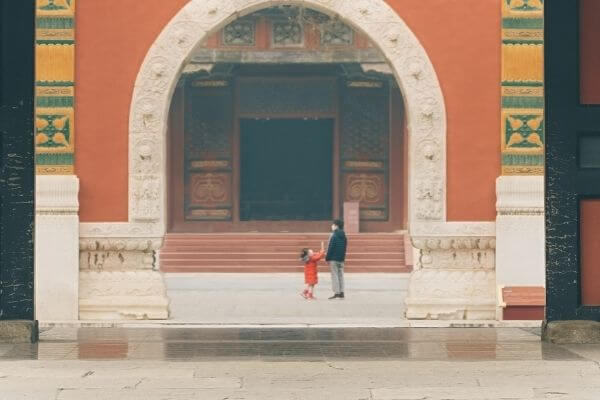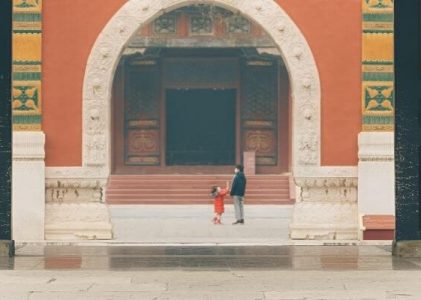How Does Inheritance Work in China?
If a person dies, his/her heirs can inherit the property.
During the lifetime, one can specify in the will who inherits his/her house and other heritage.
If the person has no will, the decedent’s children, spouse, parents, siblings, paternal grandparents, and maternal grandparents may inherit his/her estate.
Under Chinese law, the former is called Testate Succession, and the latter is called Intestate Succession ((also referred to as “Legal/Statutory Succession”).
In another article “How Much Does the Average Person Inherit from their Parents in China?”, we used a fictional story as an example to introduce how inheritance works in China.
1. How Inheritance Works When There’s a Will
Anyone may, by making a will, dispose of his/her estate to any organization or individual and designate the inheritance.
In other words, in China, you can determine who inherits and how much by appointing the heir among the statutory heirs, such as your spouse, children, parents, siblings, paternal grandparents, and maternal grandparents.
In addition, you may, by making a will, donate your estate to the State or a collective, or an organization or individual other than your statutory heir.
2. How Inheritance Works When There Isn’t a Will
In China, it is regarded as the intestate succession compared to the testate succession.
If there is no will, the estate of a decedent shall be succeeded in the following order:
(1) first in order: spouse, children, and parents.
(2) second in order: siblings, paternal grandparents, and maternal grandparents.
When succession opens, the heir(s) first in order shall inherit to the exclusion of the heir(s) second in order. The heir(s) second in order shall inherit the estate in default of any heir first in order.
The right to inheritance is equal no matter what the sex is and whether they are the children born in or out of wedlock.
3. Are heirs responsible for the debts of the estate?
If the heirs are to inherit an estate from the decedent, the estate should be used to pay the decedent’s taxes and debts before it’s partitioned.
If the entire estate cannot cover the taxes and debts, they shall be paid to the extent of the estate. And the heirs are not responsible for the remaining taxes and debts.
Heirs who disclaim inheritance assume no responsibility for the payment of such taxes and debts.
However, if the estate is used to pay the taxes and debts, a necessary portion of the estate shall be preserved for any heir who has neither the ability to work nor the source of income.
4. What happens when heirs disagree?
An heir who disclaims an inheritance shall manifest his decision in writing after the opening of the succession. In the absence of such a manifestation, he is deemed to have accepted the inheritance.
An estate with neither an heir nor a claim to inherit by the heirs shall be escheated to the State for public interest purposes.
Where the decedent was a member of a collective organization at the time of his death, the estate shall be escheated to the collective organization. This rule mainly applies to the deceased whose registered residence (‘Huji’ in Chinese) is in a rural area.
Do you need support in Cross-Border Family Matters (Marriage and Succession)?
CJO Family's team can provide you with China-based consulting service, including case assessment and management, background check, and debt collection (‘Last Mile’ Service). If you encounter any problems in cross-border family matters, or if you wish to share your story, you can contact our Client Manager Julia Yuan (julia.yuan@chinajusticeobserver.com).
If you want to know more about CJO Family, please click here.
If you want to know more about CJO Family cross-border family matters service, please click here.
If you wish to read more CJO Family articles on cross-border family matters, please click here.
Latest Posts on China-Related Cross-Border Succession Matters
- What Are My Inheritance Rights in China?You can inherit the property of your parents, children and spouse. If anyone lists you as the beneficiary in the will, you also have the inheritance rights stated in the will.
- What Is the Law of Inheritance in China?China used to have Inheritance Law (Law on Succession). However, after the promulgation of the Civil Code in 2020, China has only the “Book VI Succession” in the Civil Code. In other words, the inheritance law became a part of the civil code.
- How to Inherit Properties in China?How to Inherit Properties in China? First of all, you need to know whether the decedent has a will and whether you have inheritance rights in the will. If the decedent does not have a will, then you also need to know whether you are the heir in intestate inheritance. That is, whether you are …
- Is Debt Inherited in China?The answer is yes.
- How Much Does the Average Person Inherit from their Parents in China?We will use a fictional succession-related story to illustrate how inheritance works in China.
- Does China Have Inheritance Tax?No, China has no inheritance tax. If you inherit the money, you do not need to pay tax at all. If you inherit the real estate, you need to pay tax for the transfer of the property.
- How Does Inheritance Work in China?During the lifetime, one can specify in the will who inherits his/her house and other heritage. If the person has no will, the decedent’s children, spouse, parents, siblings, paternal grandparents, and maternal grandparents may inherit his/her estate.
- How Do I Get Money From My Deceased Parent’s Bank Account in China?You should first determine whether you are the heir to the money in the bank account of your deceased parent. If you have an inheritance right to the money, you can ask the bank to pay the part inherited by you.
- What Happens to Bank Account When Someone Dies in China?If the owner of a bank account dies, his/her heirs can get the money in the bank account.
- How Much Tax Will I Pay on My Inheritance in China?Generally speaking, there is little inheritance tax payable by heirs in China. Because, in China, heirs do not need to pay inheritance tax, except for some other taxes and fees, which are comparatively small.
- What Happens When You Inherit a House in China?What Happens When You Inherit a House in China? If you and other heirs need to inherit a house jointly at inheritance, there will be three ways: (1) one heir gets the house and all other heirs get cash; (2) All heirs get cash; (3) All heirs share the house on a pro rata basis. …
- When A Parent Dies Who Gets the House in China?The parent can specify in the will who inherits his/her house and other heritage. If he/she has no will, his/her children, spouse, parents, siblings, paternal grandparents, and maternal grandparents may inherit this house and other heritage.
- When Someone Dies Who Gets His/Her Property in China?Before his/her death, he/she can specify in the will who inherits his/her house and other heritage. If the person has no will, his/her children, spouse, parents, siblings, paternal grandparents, and maternal grandparents may inherit this house and other heritage.
- Can A Foreigner Inherit Property in China?The answer is YES. Here’s what to do for foreigners to inherit property in China.

Photo by zhang kaiyv on Unsplash

